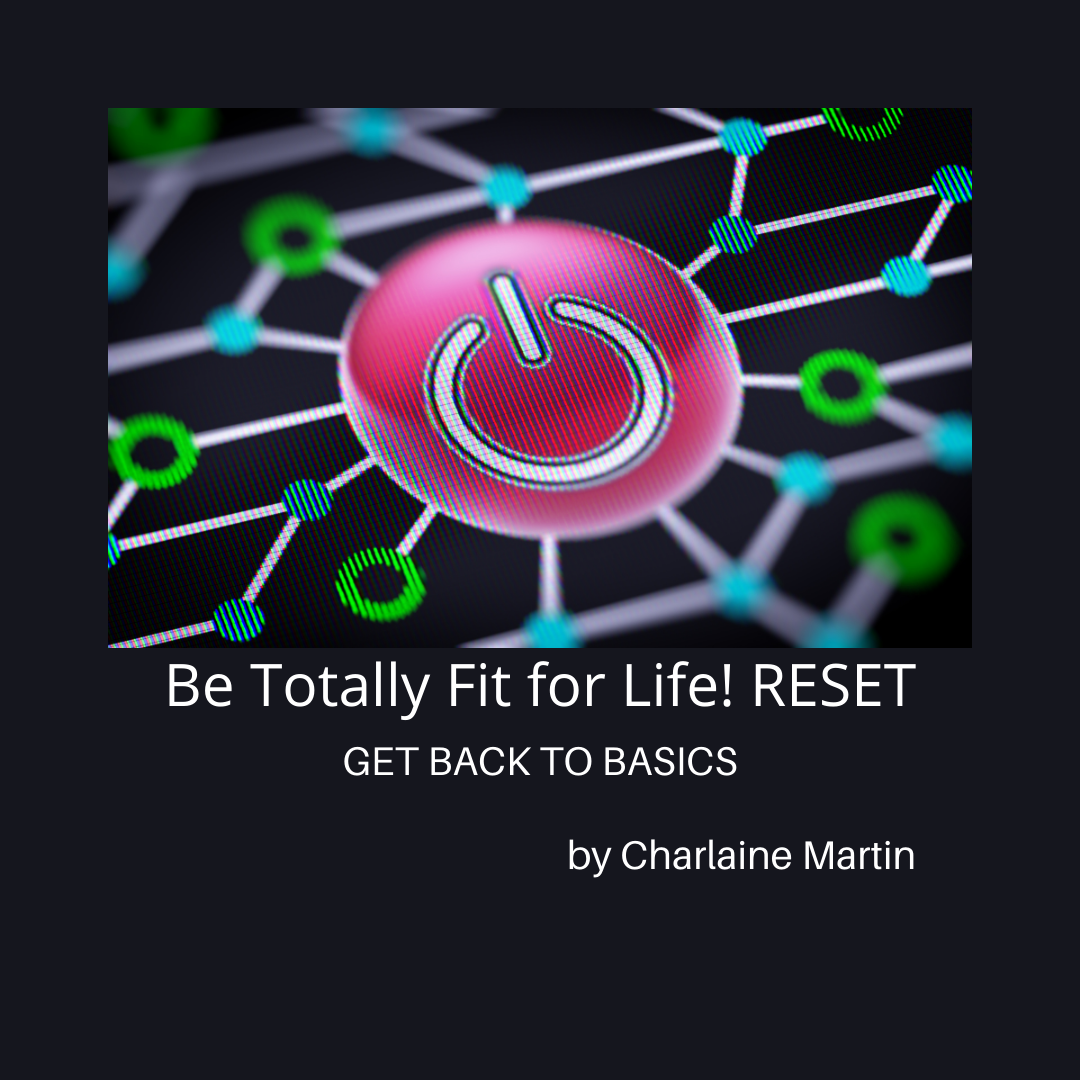Be Totally Fit for Life! RESET

Get Back to Basics
Whew! How did we get so bogged down that we don’t have time for exercise, rest, Bible study, or couple time? My Boaz and I have been reeling in overwhelm this year. Preparing for retirement was more work than we anticipated. On top of it all, our retirement house is being built, we are downsizing to move, I’m dealing with my mother’s estate while closing her conservatorship case, and trying to keep up with my writing. We feel drained of every ounce of energy and time. All of these are necessary, but all of them happening at the same time is too much! I thought about moves earlier in my adult life and look forward to resetting life once again. Each move brought along a type of reset. You know, your schedule is pretty basic with work, school, meals, and bedtime. Then, the overwhelm floods in just a few weeks or months later.
You can barely turn around, let alone exercise or cook healthy meals. Couple date? Ha! You are kidding. Right? Have you ever wanted to start over with a clean slate? What would you do differently if you had the opportunity to regain the essential time you’ve lost in the sea of over-commitments? You can do this without selling your home and hiring a moving van. Let’s look at how you can accomplish something similar to get your life back on track in all areas: physical, emotional, relational, and spiritual. Get some paper, a physical calendar you can write on, and a pencil. Let’s get busy!
- Clear out your schedule to bare bones. It would be best if you had a skeletal framework to work with. What are the essential elements that are required just to live? For example, work and school (class and study time) are essentials; whereas, book club, nail appointments, and soccer transportation aren’t.
- Before you add anything, ask yourself if each event or commitment is really necessary before adding it. Use the one major, two minors rule outside of work and school. Then, use grace and tact to turn down what really isn’t crucial for you and your family.
- Make time with God your top priority. Your basic go-to is worship and Sunday school (Bible study group). Personal time with God begins with practicing the classic spiritual disciplines. Start with reading the Bible and prayer. Add in a new one about every two weeks. Some of them will be occasional, not regular, like Fasting.
- Clear out all junk foods that cause your body harm. Fill your fridge and pantry with, in their place, fresh vegetables, unprocessed meats, whole grains, and low-glycemic foods. Strive for balanced meals with an only basic healthy snacks between meals. Make water your go-to beverage.
- Know your health numbers and what it would take to bring them to a healthy level. If your blood sugar or blood pressure is high, adjust your meals and exercise to help bring these health numbers back to healthy.
- Scale your workouts back to basic cardio, strength, and stretching. Advance by varying your basics before doing exotic group fitness classes.
- Begin spending time as a family and as a couple (engaged and marrieds) with what interests all of you. Take in a movie, stroll through a museum, whatever will strike up conversations together. Keep them low to no cost. Your own personal interests are for your time.
- Clear clutter from your home and workspace. Donate clothing and household items that no longer serve your needs. Reduce decorations, but keep keepsakes. So if your inner Pack Rat is screaming, “Keep it!” and if you don’t have a place in your home to put these items, then consider whether a storage unit is beneficial or harmful.
- Reset your finances. Begin paying down debt with the goal of ZERO debt. What expenses are necessary, and what drains your bank account. After you tithe, what expenses can you cover? What can’t you cover? Prioritize living expenses. Negotiate the payments down to something you can manage with the creditor. Always keep this in mind: credit cards are a noose around your financial neck, not a lifeline. (Financial Peace, Ramsey)
- Journal what these changes do for you, your spouse, and your children. Before adding anything new into your life, ask yourself how it will affect you and your family positively or negatively.
Once you’ve worked through this list, keep your new calendar schedule posted where everyone can see it. It would be beneficial if other family members, especially your spouse, do this same process with you. Come together and see what intersects yours and what diverges. You can enjoy activities that intersect. They diverge may either be a sticky point to negotiate or keep for your personal time apart.
Before adding anything new, ask yourself how it will benefit or harm yourself and your family. Need help working through this process? I am available for Christian Wellness Coaching. Please email me at totallyfit63@gmail.com to set up a time to do a complimentary initial consultation.
May God bless you!



